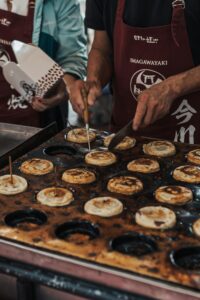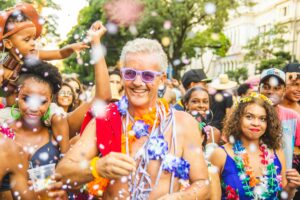Festivals In Singapore
Discover the vibrant culture and lively atmosphere of Singapore through its diverse range of festivals. From the iconic Chinese New Year and thrilling Formula 1 Grand Prix to the mesmerizing Mid-Autumn Festival and delightful Christmas on a Cruise, there’s always something to celebrate in this bustling city-state. Join us as we embark on a captivating journey through Singapore’s annual festivals, offering you a unique blend of rich heritage and modern excitement.
Overline
History of Singapore and Its Festivals
The history of Singapore is marked by several distinct phases, from its early settlement to its emergence as a global city. The island’s strategic location has made it a significant port and a crossroads of diverse cultures, which is vividly reflected in its festivals and cultural practices.
Early History and Foundation
Singapore’s history dates back to the 3rd century when it was known as a trading post of the Sumatran Srivijaya empire and referred to as “Temasek.” Its early significance was due to its strategic location along the maritime Silk Road. The island was later named “Singapura” (Lion City) in the 14th century by Sang Nila Utama, a Prince from Palembang, after he saw an animal he believed was a lion.
Colonial Era
The modern history of Singapore began in 1819 when Sir Stamford Raffles established a British East India Company trading post on the island. The British colonization formalized Singapore’s status as a global trading hub, attracting immigrants from all over Asia and beyond. During World War II, Singapore fell to Japanese forces in 1942, marking a significant period of hardship until it was liberated by the Allies in 1945.
Road to Independence
Post-war, Singapore embarked on a path towards self-governance. It merged with the Federation of Malaya, Sabah, and Sarawak to form Malaysia in 1963 but was expelled due to political and ethnic tensions, leading to its independence on 9th August 1965. Under the leadership of Prime Minister Lee Kuan Yew, Singapore transformed from a low-income country to a high-income economy, emphasizing education, public housing, and attracting foreign investment.
Modern Singapore
Today, Singapore is renowned for its highly developed market economy, impressive skyline, and strict regulations that have contributed to its status as one of the least corrupt and most business-friendly countries. It’s a multi-racial and multi-cultural country, with Chinese, Malay, Indian, and Eurasian communities coexisting and contributing to the country’s unique cultural diversity.




